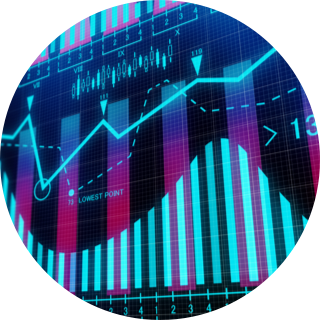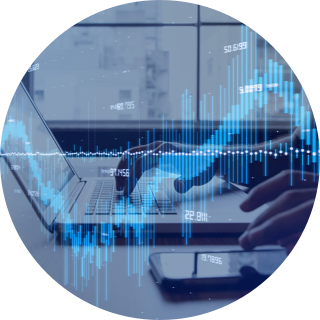Exchange traded funds are a financial instrument traded on the Australian Securities Exchange, as well as a wide number of exchanges around the world. A number of people invest in exchange traded funds Australia. Learn about what is an exchange traded fund below.
The regulator ASIC says that Exchange Traded Funds “can be a simple and low-cost way to get investment returns similar to a share index or another underlying asset”.[1]
[1] https://www.moneysmart.gov.au/investing/managed-funds/exchange-traded-funds-etfs
As traditional markets and industries flounder and ‘start-ups’ become overnight success stories through venture capitalism, crowdfunding and all sorts of ‘alternative capital raising mechanisms’, fund managers and the traditional financial sectors have been called to account.
This generational change is being driven by technology and a new found need for transparency & regulation – in large part in Australia thanks to the 2018/2019 Royal Commission into Misconduct in the Banking, Superannuation and Financial Services Industry which saw a once powerful banking sector challenged like never before.
With the ease of access for any Australian with a tax file number to become online traders through registered share broker platforms – such as IG Markets or CommSec – never has the retail investor had access to so much financial information and so many financial instruments from the comfort of their very own home.
Although this can be seen as empowerment, it must be noted that the financial markets are not a place for the fainthearted. A little bit of knowledge in finance is a dangerous thing, as many inexperienced investors have found out first hand, losing thousands or hundreds of thousands of dollars through investing in products they simply knew nothing about – especially leveraged products – and coming out the other side of a bad trade.

The share market in Australia, the ASX or Australian Securities Exchange offers a market for the buyers and sellers of shares in a company that has listed on the stock exchange. To get there, the company needed to meet a range of regulatory hurdles as set out by ASIC or the Australian Securities and Investments Commission as well as the Commonwealth Corporations Act 2001 and a range of other regulatory frameworks.
Once listed, these once private companies move to be public companies and investors can buy and sell their shares at will, enjoying their profits and lamenting the losses when the company is not tracking as well.
The beauty of shares is that the amount you invest in an Australian listed company is all that you can lose. The upside of this is you can realise a capital gain of the share price, not to mention dividends paid periodically.
There is a wide range of products available today that create financial risk, these can increase your personal liabilities far beyond the amount originally invested through leverage or speculative instruments that really should be left to the professionals.
IBISWorld had revenues in the financial planning and investment advice segment at $4.8 billion in the year to April 2019, while the fund's management services in Australia is estimated at $8 billion.
The actual process of buying and selling an exchange traded fund Is traded in much the same way as a regular share, but it is a fund, not a company.
There is usually no minimum investment – unlike most managed funds – only that your minimum investment as per your online brokerage will apply. Most in Australia sit at around $500 as a minimum investment.
In addition, like a company share, your part or share of the exchange traded fund is able to be sold, added to or traded when you feel as though doing so, as they as more often than not, highly liquid and easy to buy on the major exchanges around the world.

An exchange traded fund is effectively a pool of tens, hundreds, or sometimes thousands of stocks or bonds in a single fund[1]. Not just is it a pool of stocks or bonds, it is also a pool of investors’ money that is stockpiled into the fund to create the exchange traded fund.
An Exchange Traded Fund (ETF) is a diversified collection of assets (like a managed fund) that trades on an exchange (like a share). It blends the benefits of both managed funds and shares and offers investors a simple and cost-effective way to achieve diversification in their investment portfolios.[1]
These collections of assets, however, are set up to ‘track’ an index of shares, bonds or other financial metrics both in the domestic market and around the world. By investing in a exchange traded fund that focuses on the US Tech stock or top 100 Nasdaq companies, individuals can do so without having to purchase each one of those 100 stocks, rather purchase some BetaShares NASDAQ 100 EFT – ASX NDQ.
These shares not only allow you to invest in companies such as Apple, Microsoft and Amazon, they also allow you to be part of a fund that has huge economies of scale, taking positions in the market you simply couldn’t obtain being an individual investor.
For example, the exchange traded fund mentioned above, as at the 29th of April 2019, had an asset value of $519,378,702 spread amongst 106 companies and is effectively tracking the movement of the most innovative stock exchange on the planet.
The benefit is you can invest from your home in Australia and through the ASX, allowing all the protection and accountability from the regulators and laws we discussed earlier in this article.
Rather than investing in one company or 10 companies, individuals are investing in a fund that invests in 106 companies. It is important to note, that you don’t become an owner of these companies by any means, you are a shareholder in the fund, not the ‘bricks and mortar business’ or iPhone sales, but you can enjoy their profits and success all the same.
[1] https://www.blackrock.com/au/individual/ishares/what-is-an-etf?locale=en_AU&switchLocale=y&siteEntryPassthrough=true
Exchange traded funds offer a steady investment option, in which returns are consistent and losses somewhat mitigated through the diversification of these large accounts. Rather than putting all your eggs in one basket, your risk is spread.
Exchange traded funds are low cost in terms of their management fees and only attract a small brokerage fee & spread from your investment broker when you buy and sell, whereas other funds or investment options can attract large annual percentage fees as well as performance fees.
Transparency and accountability on exchange traded funds is high, with the ASX requiring them to release the mix of shares, the spread of markets and the performance on a daily basis so retail investors can make informed decisions.
In addition, as an investor, you have access to all the features that are available to stock investors, including the option to short or use limit and stop orders, not to mention being able to buy and sell as you wish while the exchange is open.[1]

Finally, there is risk management, exchange traded funds are exposed to risks, but not the same microeconomic risks or company-specific risks that investing in a single company would. This allows risk adverse investors some peace of mind that their risk is spread.
When it comes to the cons, they are certainly not as vast as the pro’s for exchange traded funds, however, they certainly do exist.
If you are trading in foreign markets such as the Nasdaq example given earlier, you will be exposed to foreign exchange and foreign market risk. Currencies move as do share prices, so although you may see again on paper, the cost of moving it into Australian dollar, and the transaction fees need to be taken into consideration.
Fund managers are not doing it for free, however, your returns will never exactly match the index that you are tracking with your exchange traded fund when you need to apply the management fees and brokerage fees.
There is market volatility in any investment and this should be expected, although exchange traded funds provide protection through economies scale and diversification of the asset mix and there are still risks that can fall upon the investment.
[1] https://www.canstar.com.au/etfs/pros-and-cons-of-exchange-traded-funds/
Used by first-time investors as a way to enter the market, retirees as a way to protect their money while enjoying returns to match their risk profile while also providing professional investors diversification and hedging opportunities to put capital into, exchange traded funds provide cost-effective and resilient market products for all investors.
If you are considering investing in an exchange traded fund, or any financial instrument, your first stop should be the product disclosure statement of the fund. Next should be a review of past performance and to speak with your stockbroker or financial expert to ensure an exchange traded fund works with the investment strategy you are looking to employ. It is important to remember never invest more than you can afford to lose in any financial investment.
1. Schedule an appointment (Conference Call) with an Investment Manager
2. Submit a Managed Discretionary Account (MDA) application with Walker Capital Australia.
3. Open a trading account with the Walker Capital Australia’s executing broker.
4. Select from our range of investment strategies and choose your asset allocation between the choices of accounts.
5. Once all accounts are opened, and funds have been chosen, our team gets to work and begins trading.
Walker Capital Disclaimer *
Walker Capital Private Wealth Pty Limited (ABN 86 161 363 097) holds an Australian Financial Services Licence (AFSL No. 436859). You should read and consider the relevant Disclosure Document and the issuer's Terms and Conditions before making a decision about whether to purchase any financial products.
Walker Consulting (Australia) Proprietary Limited t/as Walker Capital Australia (ACN: 602952116) is a Corporate Authorised Representative (CAR No. 1250196) of Walker Capital Private Wealth Pty Limited (ACN 161 363 097) (AFSL no. 436859)
© Copyright 2022 Walker Capital – All Right Reserved